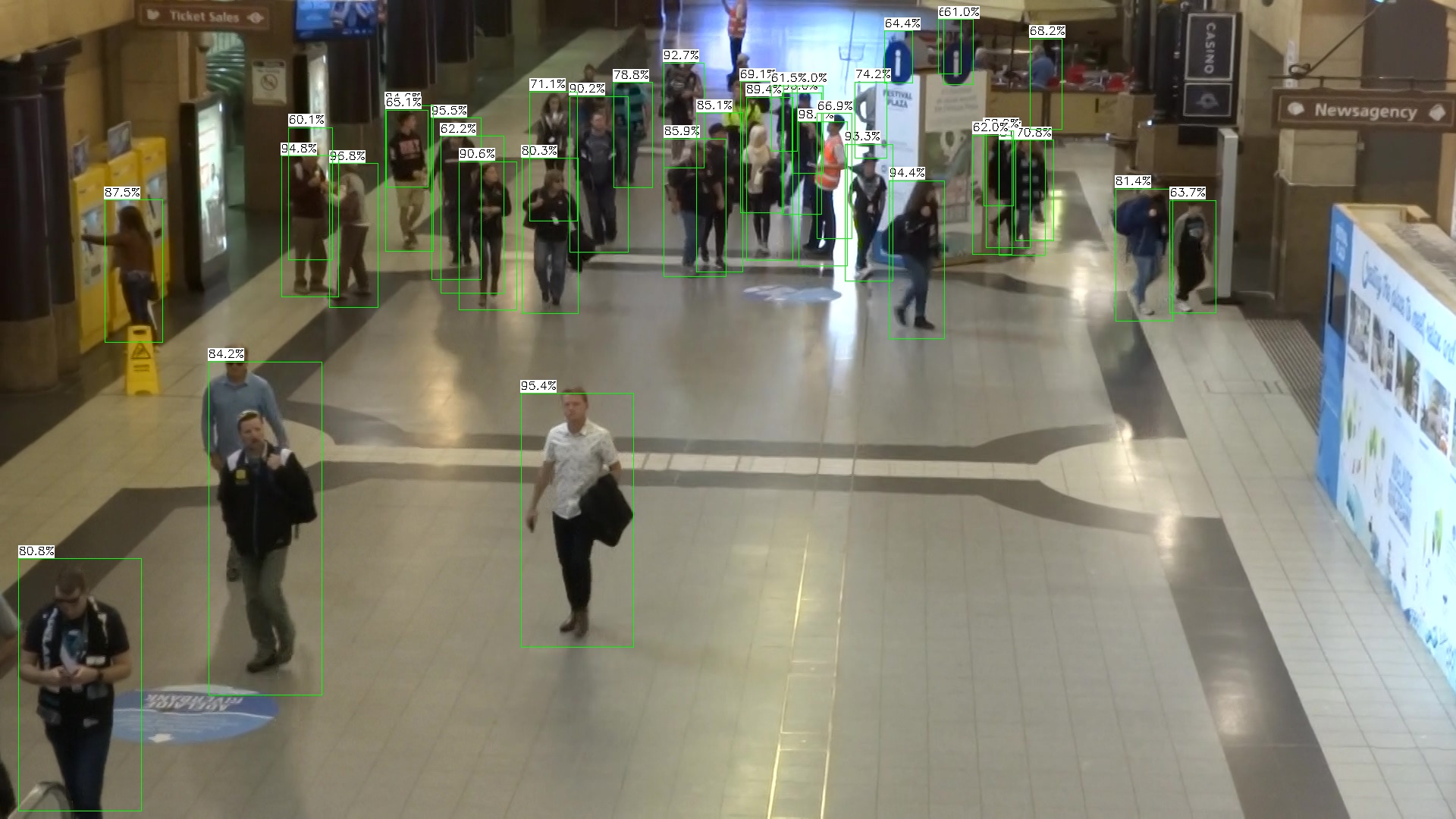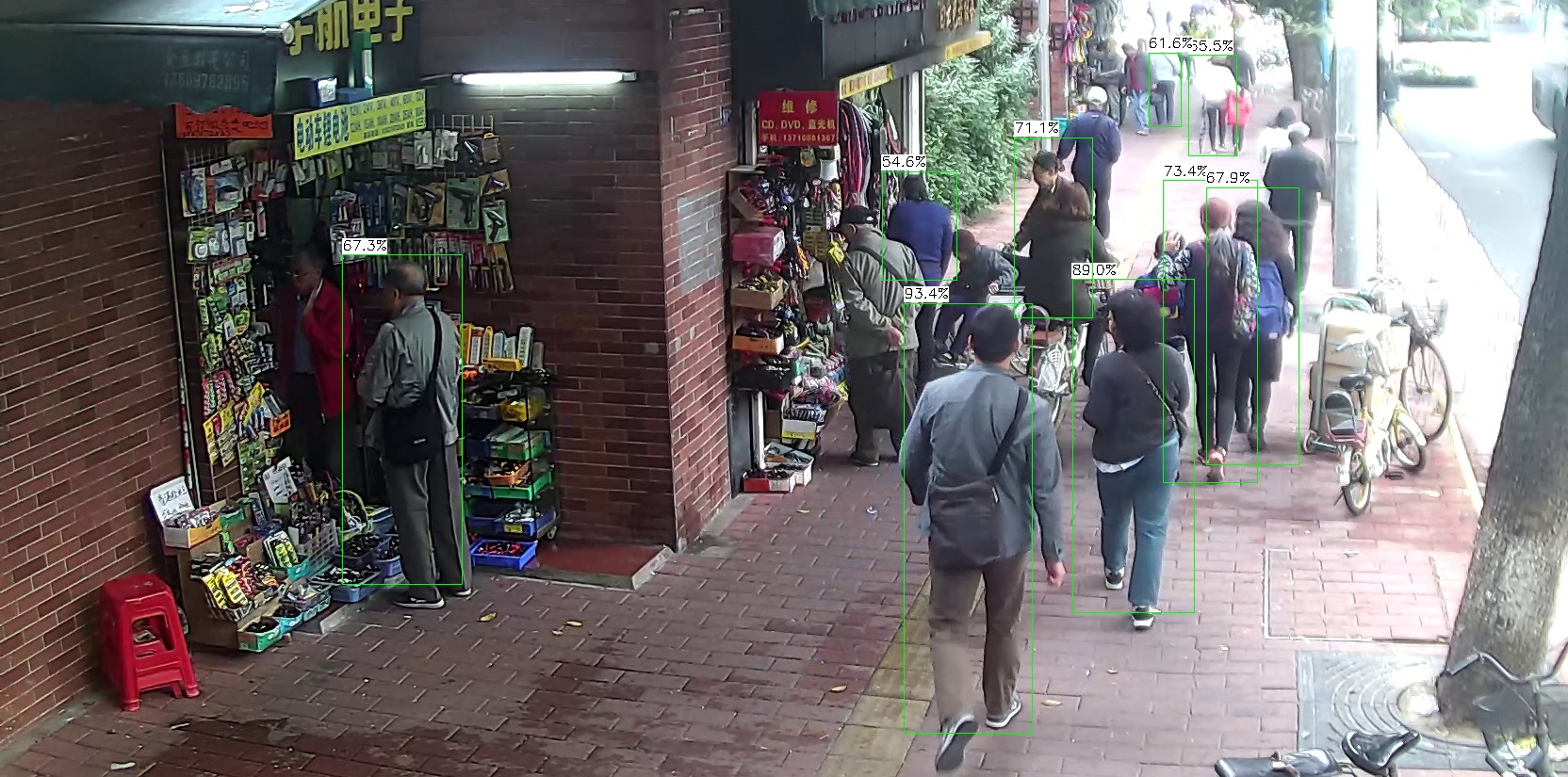Light-weight model with NCNN inference for person/pedestrian detection. The model is trained with maskrcnn but not for any specified perdestrain detection dataset. You can view the model structure easily with netron. The pytorch official mobilenetv2 is used as backbone. It seems the FPN structure and ROIHead produce much computations and will be improved sooner or later. However it is much harder than face detection for tiny networks, expecially for surveillance.
Please refer to the config for training settings. You should prepare the COCOperson annotation if needed. For wider perdestrian, I construct the dataset in coco-style and it works fine.
Flops and params are evaluated by pytorch-OpCounter. More baselines are comming soon..
The mobile0.35xFPNdw and mobile1.0x are not targeting wider pedestrian, and no image in wider pedestrain is in the training set. The AP is just for reference.
- mobile1.0x: wider pedestrian AP: 0.3777(input size: 928x512), params: 2.253M
- mobile0.35xFPNdw: wider pedestrian AP: 0.3577(intput size: 928x512), params: 396.128K
- mobile0.35xFPNdw_widerpedestrian: wider pedestrian AP: 0.4935(intput size: 928x512, train with wider pedestrian only)
| model | (224, 224) | (480, 288) | (928, 512) | (1152, 640) |
|---|---|---|---|---|
| mobile1.0x | - | 1.334G | 4.585G | 7.115G |
| mobile1.0x backbone | 326.207M | 898.733M | 3.089G | 4.793G |
| mobile0.35xFPNdw | - | 508.895M | 1.749G | 2.714G |
| mobile0.35xFPNdw backbone | 69.457M | 191.361M | 657.714M | 1.021G |
-
Specified the model path and shape(should be divisible by 32) for input image in the file. Put into the ncnn/examples and build. Or you can directly compile with correctly links.
-
Anchors are built once for the model, which assumes that the input shape remains the same.

